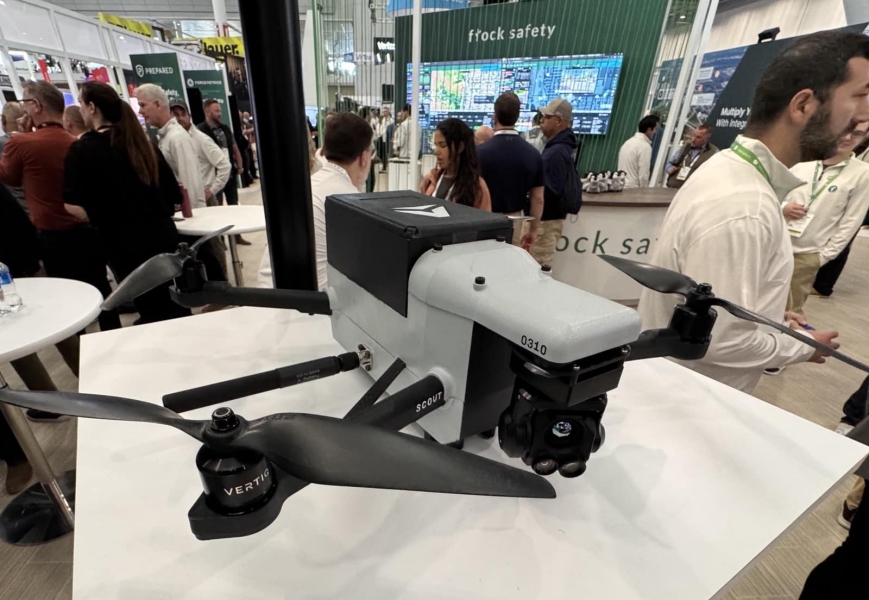Georgia Tech Becomes First University In Georgia To Deploy Drone First Responders With 90-Second Response Time

Amazon Prime Deals: DJI Mini 4K for $239, DJI Neo for $159, Skyrover X1 FMC for $718!
Georgia Tech has launched a groundbreaking drone first responder program that can reach any 911 call location on campus in 90 seconds or less. The program, officially launched Monday, makes Georgia Tech the first university in the state to deploy this technology for campus safety.
This deployment represents a significant shift in how universities approach student safety, offering rapid aerial response that can often arrive at emergency scenes before ground units. With more than 20 law enforcement departments across Georgia already using drones, Georgia Tech is now setting a precedent for other educational institutions statewide.
How the Flock Safety Aerodome System Works
The university has partnered with Flock Safety to deploy its Aerodome drone first responder system. Robert Connolly, Georgia Tech Chief of Police, told Channel 2 News the goal is to “have a patrol drone that can patrol the campus all the time, respond to major incidents instantly.”
Bailey Quintrell, chief strategy officer of Flock Safety, highlighted the speed advantage: “Our drone system can respond anywhere within a four-mile radius, 90 seconds or less. Tech’s campus is smaller than that.”
That translates to roughly 6.4 kilometers of coverage area, with the drones providing real-time video feeds to campus police before officers arrive on scene.
The system allows drones to launch immediately when 911 calls come in, giving police critical situational awareness and potentially transforming how emergencies are handled on campus. The technology has already proven effective in municipal deployments, where similar Flock systems have reduced response times dramatically.
Georgia Tech Takes Lead Among Universities
Georgia Tech becomes the first university in Georgia to adopt this technology, potentially setting a model for other institutions. The deployment comes as drone first responder programs have exploded in 2025, with the FAA approving hundreds of waivers for law enforcement agencies nationwide.
Drones are already being utilized by more than 20 law enforcement departments across Georgia, helping with pursuits and catching shoplifters. But university campus deployments remain relatively rare, making Georgia Tech’s program particularly significant for higher education security planning.
Metro Atlanta has become a hub for drone first responder adoption, with nearby Dunwoody, Brookhaven, and Atlanta police departments all incorporating Flock Safety drones into their emergency response protocols. The regional trend suggests aerial surveillance is becoming standard in modern public safety strategies.
Privacy Safeguards and Student Safety Focus
To address privacy concerns, Flock has implemented measures such as keeping the camera aimed at the horizon until the drone reaches its destination. This prevents recording during transit and limits surveillance to actual emergency incidents.
Quintrell emphasized the parental perspective, noting the expectation of safety when sending children to school. The drones are designed to provide faster, more coordinated responses for potential crime victims and emergency situations on campus.
The system offers police a real-time view of situations, allowing them to assess incidents quickly and efficiently before deploying ground units. This can save critical time and resources while improving officer safety and response effectiveness.
DroneXL’s Take
Georgia Tech’s drone first responder launch represents a full-circle moment for Flock Safety, which was founded in 2017 by Georgia Tech graduates and has since grown into a $7.5 billion surveillance technology giant. The company recently opened a 97,000-square-foot manufacturing facility in Smyrna, Georgia, cementing its home-state roots.
While the 90-second response time offers undeniable safety benefits, the expansion of DFR programs onto university campuses raises important questions about surveillance in educational settings. Metro Atlanta has become one of the most surveilled metropolitan areas per capita globally, with interconnected networks of cameras, license plate readers, and now aerial drones. Georgia Tech students will now experience this surveillance ecosystem firsthand on campus.
The timing aligns with 2025 being called the year DFR “went mainstream,” with 214 FAA waivers approved by mid-year alone. As more universities consider similar programs, establishing clear policies around data retention, flight logging, and community oversight will be critical. The Electronic Frontier Foundation and privacy advocates have consistently raised concerns about Flock’s surveillance infrastructure, particularly regarding potential integration with license plate readers and other tracking technologies.
The question for other universities becomes: Can you provide rapid emergency response without building a comprehensive surveillance apparatus? Georgia Tech’s program will likely serve as a test case for higher education nationwide.
What do you think? Share your thoughts in the comments below.
